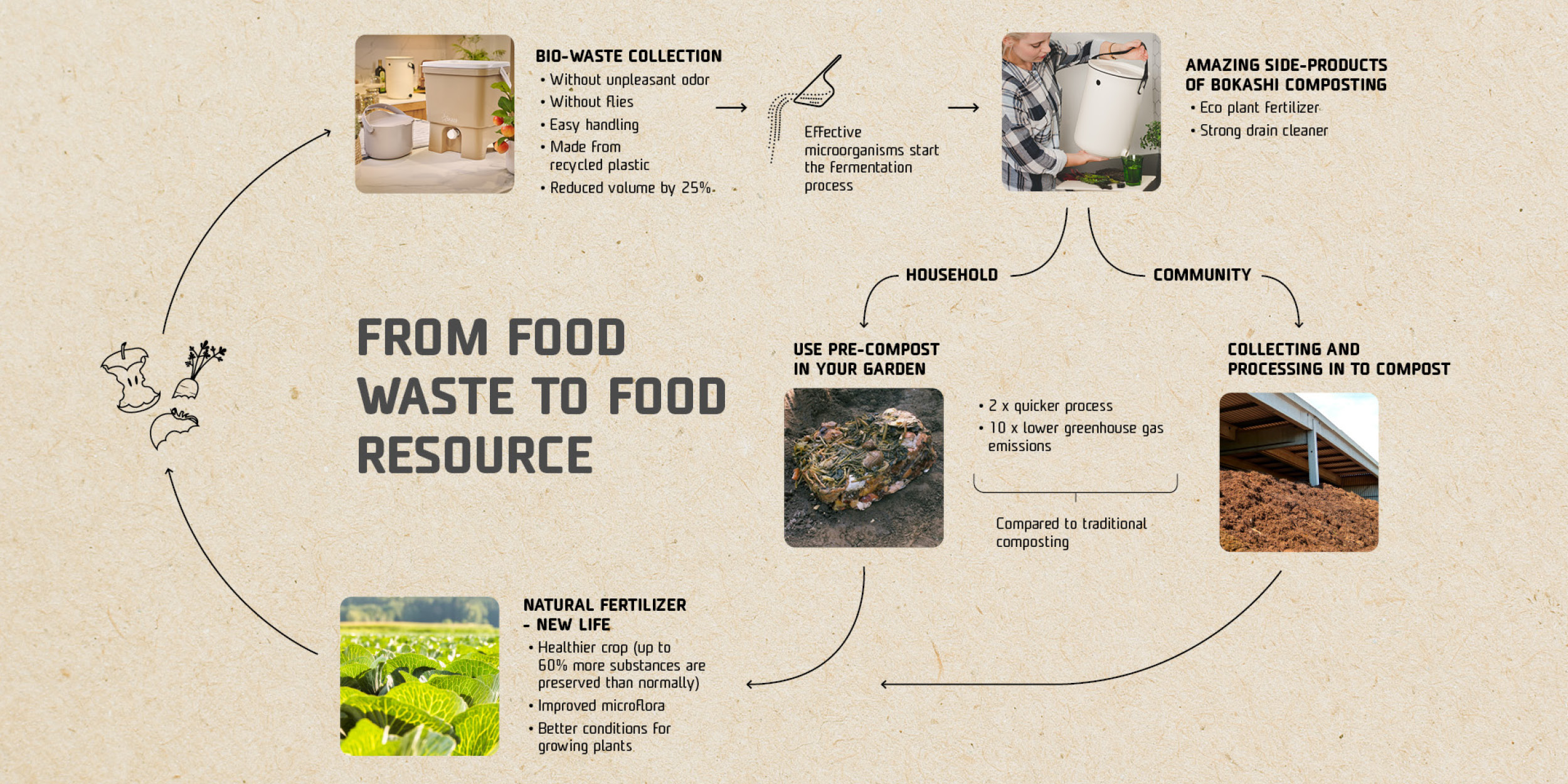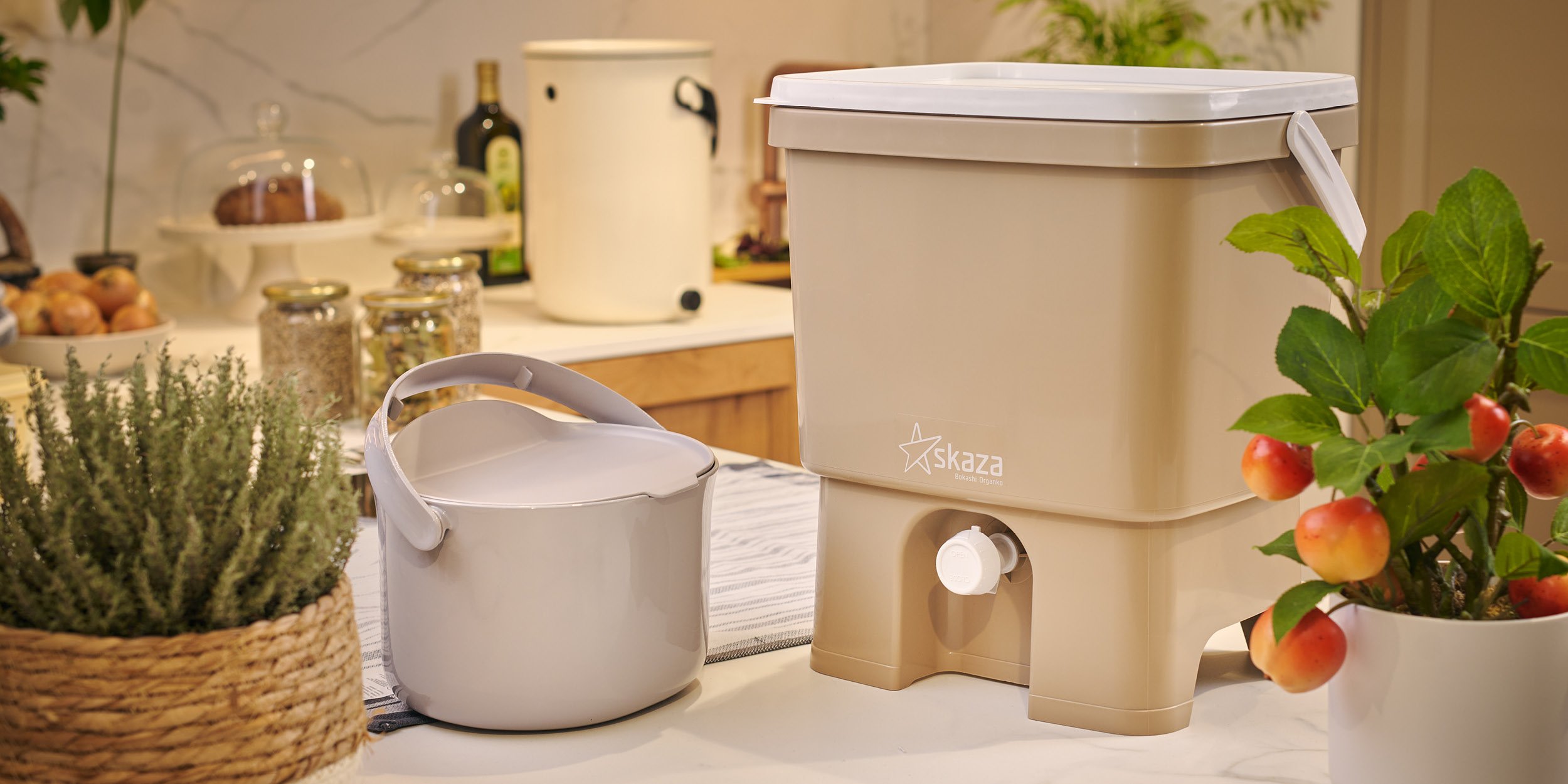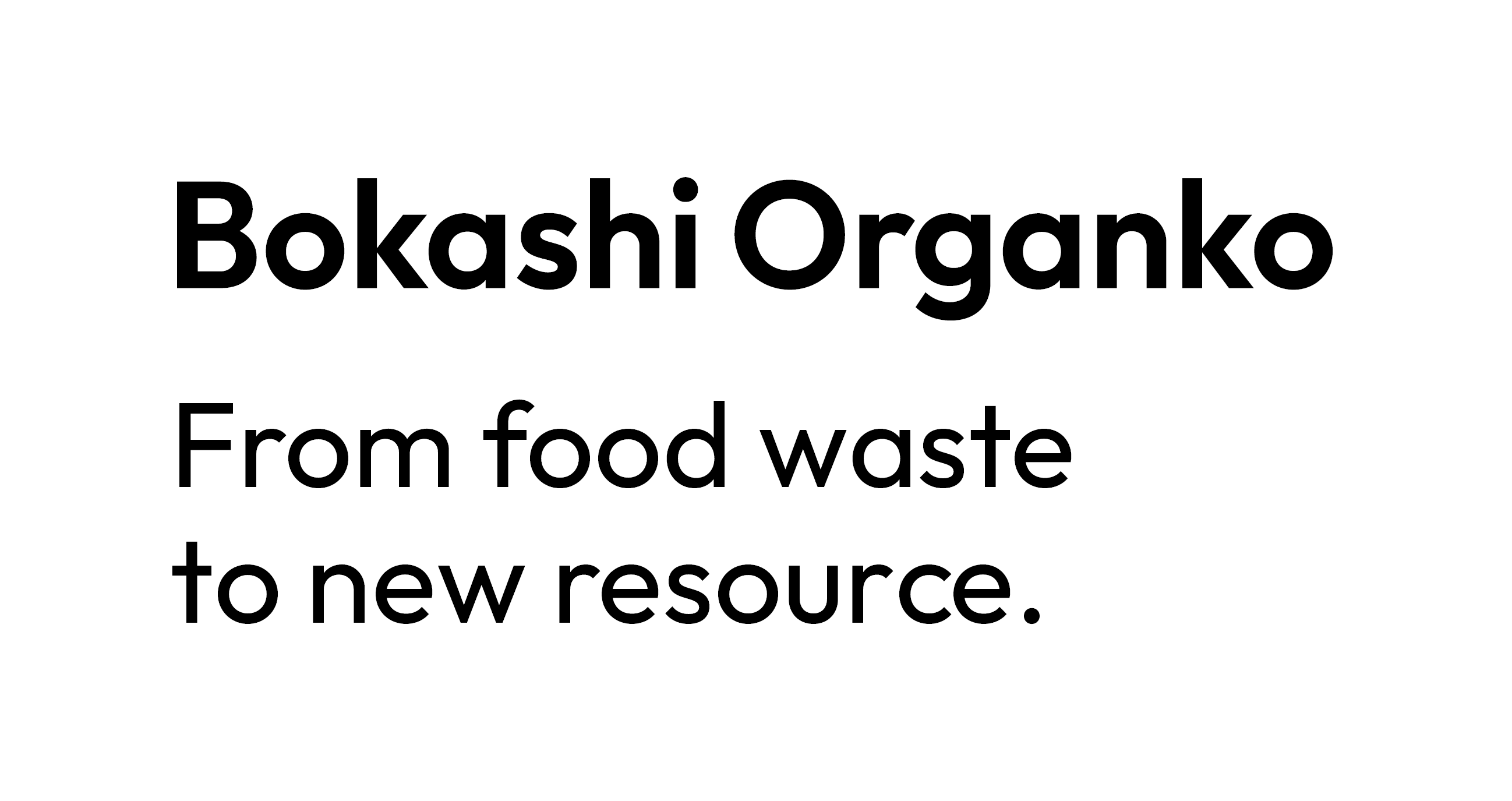Most people aren’t aware that organic waste makes up about 34% of all municipal waste. Sadly, less than half (about 43%) of that organic waste gets recycled. As such, we all need to raise our awareness by learning about sustainable concepts and then take action by implementing the right kind of habits. Moreover, since we can’t do the work for you, we will focus on the former and thus tell you all you need to know about a particular food waste loop and how you can do your part easily with Bokashi Organko and Organko Daily.
What is a food waste loop
The key idea is that organic waste must stay in the loop (it must cycle) in order for us to recycle it fully and thus ensure that all organic waste is repurposed. By doing so, we reduce the amount of organic waste, we prevent organic waste from decomposing in landfills, where it emits large amounts of CO2, and we ensure that organic material is used to add nutritional value to our soil and thus to our plants.

Since a food waste loop is a loop (a closed circular process), we can start describing it at any point; however, let's begin with food preparation. And, while there are different food waste loop types possible, we will focus on the most efficient one. So, here are the key stages of the most efficient food waste loop:
- Preparing food - You produce or buy organic food, and while preparing it (especially if you eat healthy food), you already produce organic waste. Sadly, there is also a lot of food leftovers. While ideally, we want to aim to prepare our food in such quantities that it doesn't result in leftovers, we make a huge difference if we collect the leftovers properly (more on that below).
- Proper collection of organic waste - Collecting all your organic waste and storing it properly is crucial. For one, it must be separated from other types of waste. And, since many users find dealing with organic waste quite messy, let’s tell you about two tools that make a world of difference.
- Organko Daily - This is a 3.3L organic waste bin. Thanks to its practical design it can be handled with a single hand. It is also convenient as you can have it next to you wherever you prepare food in your kitchen. Finally, at the end of the day, you simply empty it into Bokashi Organko.
- Bokashi Organko - This is a 9,6L indoor composter designed to utilize the natural process of fertilization best. The latter requires air-tight conditions and a way to remove the fertilizing liquid easily. Moreover, with Bokashi Organko, you eliminate any flies, pests, unpleasant smells, and other issues related to organic waste management. Furthermore, at the same time, you reduce the amount of waste (volume reduction by 25%) and already start recycling organic waste. Note that for the most optimal flow of the food waste loop, it is recommended to have two Bokashi composters (one in use and the other doing its thing by converting food waste into Bokashi cake).

- Effective microorganisms (EM) - Important part of a proper food waste loop that uses the most practical and most effective indoor organic waste management (Bokashi composting) is the use of fermentation starters (a.k.a. effective microorganisms). While many beneficial microorganisms are already present in food, you want to add a proper fermentation starter (e.g.: Bokashi bran) to ensure optimal fermentation. As such, you simply spray or sprinkle EM over the organic food after emptying your daily batch into your Bokashi Organko.
- Side product of Bokashi composting - Bokashi Liquid - It can take up to two days after starting a new batch for the Bokashi liquid to appear (it depends on the factors affecting the composting process). However, once the process is on its way, you should collect the fermentation liquid (a.k.a. Bokashi juice) every second day. Moreover, this liquid is a perfect plant fertilizer when diluted in a 1:200 ratio (Bokashi juice : water). However, it serves as a great organic drain cleaner when not diluted. By producing this side product, the volume of your organic waste reduces significantly.
- Household vs. community use of Bokashi Cake - this is the stage of the food waste loop where it can take two paths. One is suitable for users with their own gardens, while the other is for users living in environmentally conscious communities, which ensure that the food waste is further properly processed. At this point, we must point out that Bokashi composting is two times faster and has ten times lower greenhouse gas emissions compared to traditional composting.
- Households can use pre-compost fermented mass (Bokashi cake) by digging it in their garden soil. Actually, there are many ways of how to use Bokashi compost fermented mass.
- Communities use an organized system to collect pre-compost mass and then process it into compost. Farmers and gardeners of the community then use the latter. A great example of this food waste loop has been set in place at Sustainable City in Dubai).
- Food production - Using compost is a key aspect of organic gardening and farming. Combined with organic fermentation, it ensures that plants get the nutrients they need to thrive. With healthy and active soil, producing organic crops is much easier. Moreover, the beneficial microorganisms (EM technology) help ensure that plants are protected from the bad guys (harmful microorganisms). Once the crops are ripe and ready, we go from this stage back to preparing food, which successfully closes our food waste loop.
.jpg?width=795&name=What%20Is%20a%20Food%20Waste%20Loop%20and%20How%20Does%20It%20Go%20Wit%20(1).jpg)
Final thoughts
For quite many years, a sustainable lifestyle was a choice practiced by a very small number of people. However, luckily we have raised the cumulative global environmental consciousness in the last decade. As such, we now know that when we don’t practice sustainability in all aspects of society, the consequences can be catastrophic. With enhanced global warming already causing devastating issues all across the globe, we believe a sustainable lifestyle should no longer be a choice but an obligation. And, while politicians may eventually implement proper laws, we all know how slow they move. Thus, it is essential that we all take full responsibility for our mother nature’s and all its inhabitants' well-being by doing the best we can. With that in mind, thanks to Organko Daily and Bokashi Organko, implementing the above-explained food waste loop into our everyday lives is a simple lifestyle change we can and should all implement as soon as possible. We’ve got this!


.jpg?width=300&name=What%20Is%20a%20Food%20Waste%20Loop%20and%20How%20Does%20It%20Go%20Wit%20(2).jpg)